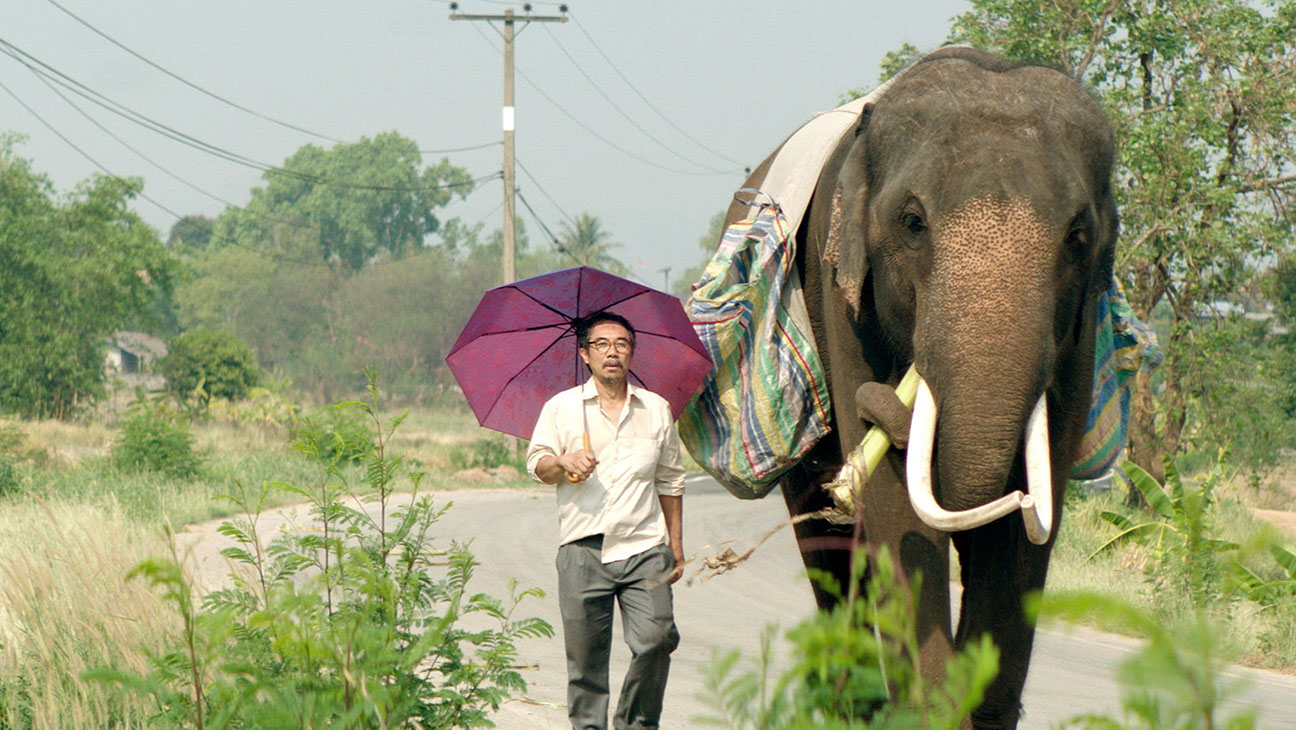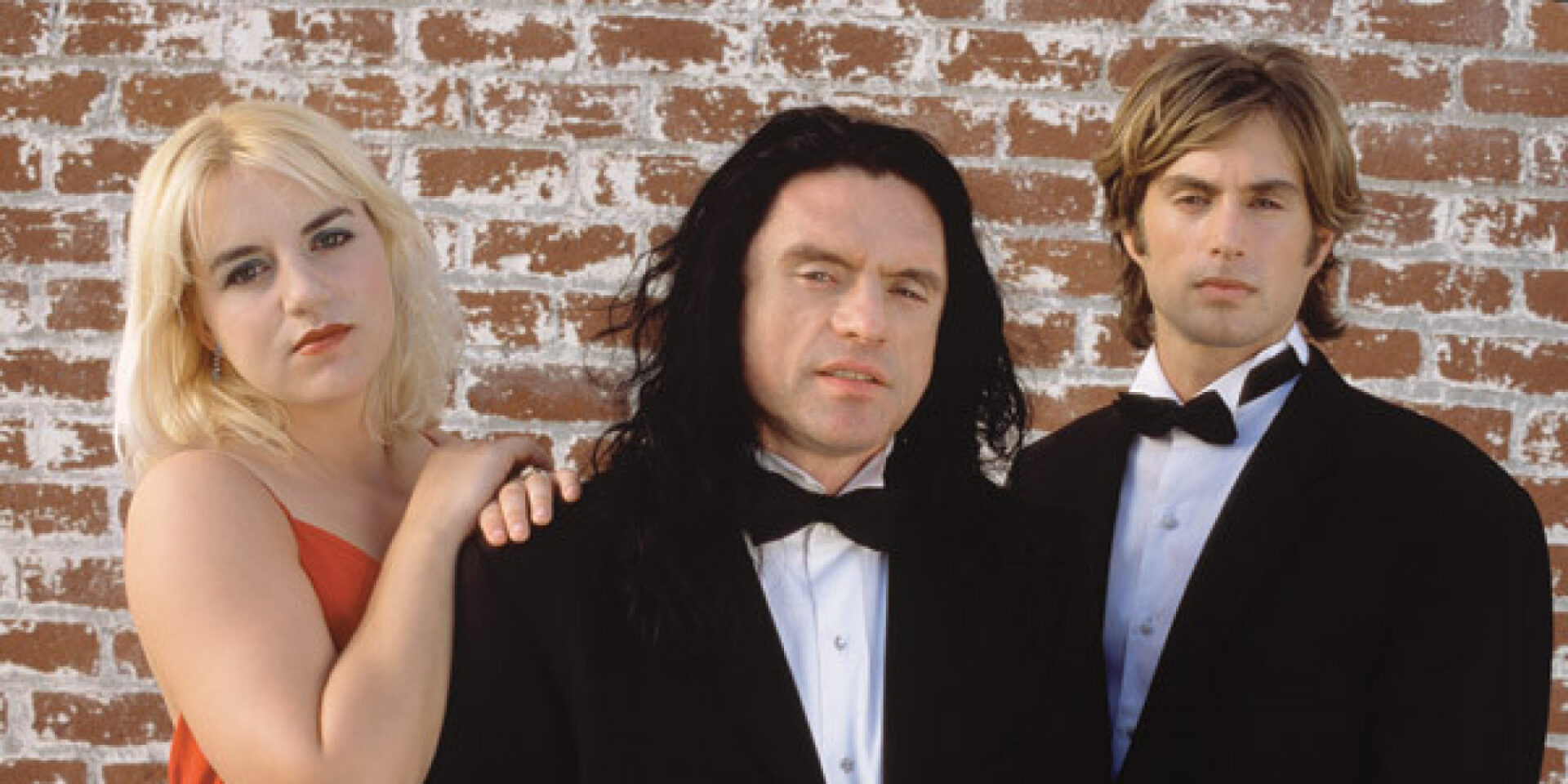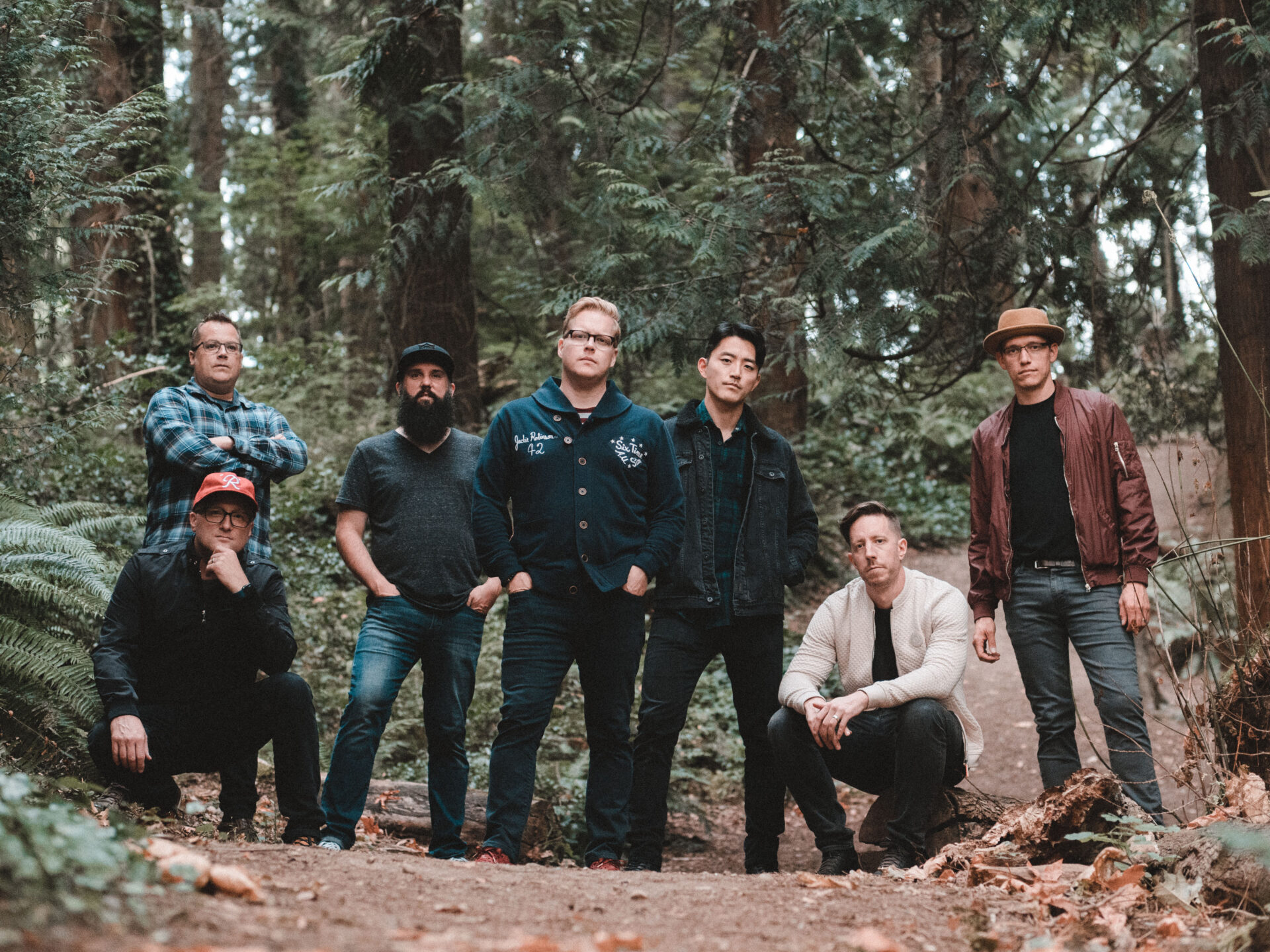I may not have reached that fabled age as of yet, but there is no shortage of media to inform me of just how difficult it is to cope with the existential dread of a midlife crisis. Often these stories are about attempts to recapture youth in futile and self-defeating ways, but Pop Aye is a bit of a different animal in how it approaches its subject. Writer-director Kirsten Tan addresses the elephant in the room by literally placing an elephant in the room, taking its protagonist on a journey that is externally strange as it is internally revelatory.
Thana (Thaneth Warakulnukroh) is a middle-aged architect in Bangkok, increasingly disillusioned with his job and living with a wife who would rather spend time with her vibrator than with him. However, one day while walking through the city, he sees a circus elephant that he recognizes from his youth, Popeye. He buys the elephant and takes the pachyderm on a trek across the Thai countryside to return him to their hometown, where he meets an assortment of characters including a drifter who longs of his lost love and a transgender prostitute who wishes she was still able to attract customers as she did in her youth.
What’s interesting about Tan’s take on middle-age is not so much that Thana and his supporting cast want to reclaim their youth as they want to correct past mistakes that led to their current states of affairs. Youth is portrayed as a time of careless and casual cruelty and selfishness that carries ramifications across decades, if not in a tangible sense then at least in an emotional one. But what’s remarkable about Thana’s journey is the realization that mistakes cannot, in fact, be corrected, but instead can only be built upon to create a better future. Regrets have their place, but making mistakes is shown to be a perpetual part of the human experience, and as the world leaves our successes in the dust, we in turn must let go of our failures in order to create new successes. It’s an intriguing and powerful message framed around the unlikely journey of a man and his elephant companion.
But for as intriguing as the message is, it’s presented in a relatively standard, naturalistic manner, which sometimes works to comedic effect given the absurdity of its elephantine conceit, but mostly paints Thana as little more as an archetypal vessel to communicate the film’s message. This is further exacerbated by some strange editing choices that tell the story anachronistically, which do serve to enable some intriguing third-act reveals about Thana’s past, but are rarely signaled to be flashbacks until context forces you to figure it out. It’s a sloppy bit of storytelling that acts as a disservice to the richness of the themes being explored.
Overall, though, Pop Aye is an intriguing bit of South Asian cinema, exploring a universal feeling of growing older and communicating great messages about how to cope with the feelings that advancing age and mortality inspire. Even setting aside the thematic density of the work, this is a movie where you get to hang out with an elephant for the better part of two hours; for some, that should be enough of a novelty to encourage a look. And those folks might just catch a glimpse at the human condition in the process.













